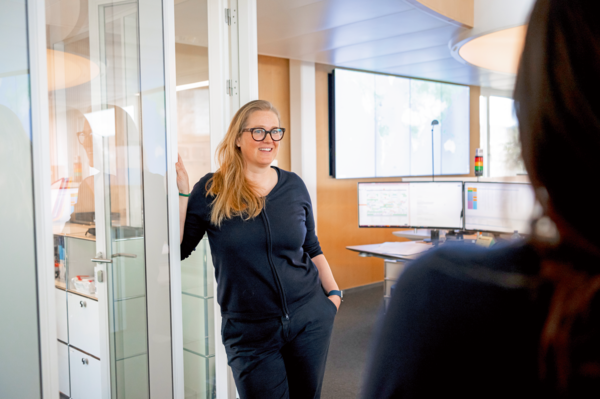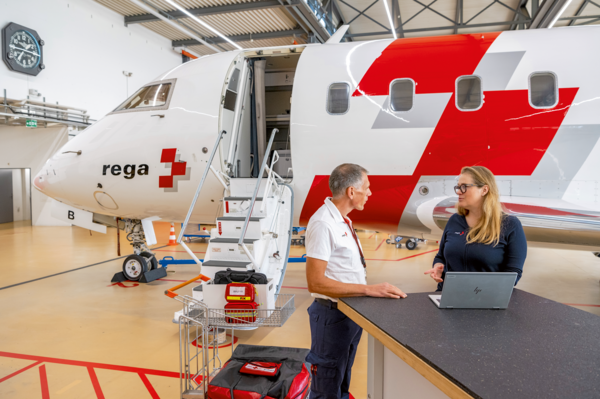Rega Centre, 6.30 am: Shift handover at the Jet Operations Centre. The work colleague from the night shift brings medical consultant Kerstin Woernle up to date: Rega patrons in Thailand, Sri Lanka, Finland, Italy and the Czech Republic are waiting for medical clarifications or advice from Rega. As the time difference in Asia means that it will soon be evening, Kerstin Woernle first calls Phuket in Thailand. “Bangkok Hospital, sawadee ka,” says the voice over the receiver. In English, Kerstin Woernle asks for the doctor who is looking after the Swiss patient. The man is suffering from terminal cancer. He has travelled to Thailand for a special cancer therapy, but it has not had any effect. Now he has unbearable pain, is becoming weaker by the day and can only walk a few steps. “The hospital is very good. Nevertheless, they’re no longer able to alleviate his pain there,” says Kerstin Woernle. “I’d like to know from the doctor in attendance whether he considers the patient fit to fly – that is a prerequisite for us to be able to fly someone home in our ambulance jet.” The Thai doctor is on the end of the line. The patient would be able to fly, but besides the medical care during the flight, he would need strong painkillers. Shortly afterwards, the medical consultant calls the patient. He is feeling very poorly, but he calmly explains that he wants nothing more than to go home as soon as possible. For Kerstin Woernle the situation is clear: the man needs the Rega ambulance jet. She informs the flight coordinator, who immediately starts to organise the mission.


